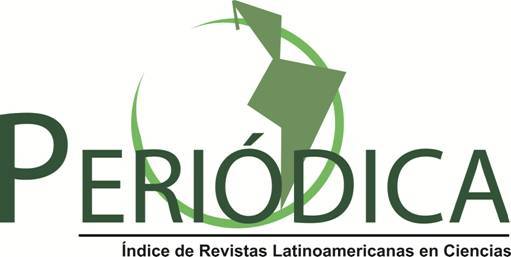Hydrating solutions in two tuberose (Polianthes tuberose) cultivars: physical, physiological and biochemical responses
DOI:
https://doi.org/10.18633/biotecnia.v23i1.1285Keywords:
Tuberose, peroxidase, catalase, superoxide dismutase, respiration.Abstract
Tuberose (Polianthes tuberosa) ‘Mexicano’ and ‘Perla’ spikes, were harvested with 5 or 1 open basal flowers, and then treated with hydrating solutions containing gibberellic acid, benzyladenine, amino oxyacetic acid, citric acid, sucrose or hydroxyquinoline citrate, to evaluate postharvest physical, chemical and physiological changes, for a later technological development to increase the useful life of this ornamental plant. We used a radomentized experimental design, with a spike as the experimental unit and six or eight repetitions. Our results indicate that in both varieties, the relative fresh weight and water consumption and the number of open flowers increased, while respiration and total sugars decreased, when treated with HS containing AC or BA. The appearance was good for five days in ‘Mexicano’ spikes hydrated with AC or BA + Sac, while in ‘Perla’, for seven days in all HS-applied treatments. Peroxidase, catalase and superoxide dismutase enzymatic activities were high in control spikes and low when hydrated with AC or BA. In conclusion, hydration with AC or BA improves the metabolism and quality of ‘Mexicano’ and ‘Perla’ spikes.
Downloads
References
Ahmad, S. S. y Tahir, I. 2016. How and why of flower senescence: understanding from models to ornamentals. Indian Journal of Plant Physiology 21: 446-456.
Arief, Z. M. 2016. Postharvest Physiology and Handling of cut Flowers. San Bernardino, Scholar´s Press.
Bailly, C., Corbineau, F. y Van Doorn, W. G. 2001. Free radical scavening and senescence in Iris tepals. Plant Physiology and Biochemistry 39: 649-656.
Barba R. G., Rodríguez, J. M. D., Castañeda, M. C. S., Rodríguez, A., Van Tuyl J. M. y Tapia, C. E. 2012. Mexican geophytes I. The genus Polianthes. Floriculture and Ornamental Biothechnology 6: 122-128.
Beyer, F. W. y Fridovich, I. 1987. Assaying for superoxide activity: some large consequences of minor changes in conditions. Analytical Biochemistry 161: 559-566.
Bradford, M.M. 1976. A rapid and sensitive method for the quatitation of microgram quantities of protein utilizing the principle of protein-dye binding. Analytical Biochemistry 72:248-254.
Castillo, L. E. C. 2011. Introducción al SAS® para Windows. Chapingo, Universidad Autónoma Chapingo
Choudhury T. M. y Barooah L. 2011. Effect of Pulsing and Different Holding Solutions on Flowers quality and Vase life of Tuberose (Polianthes tuberose Linn) cv. Calcutta Double. Indian Journal of Hill Farming 24(1): 31-33.
Dias, T. G. M., Finger, F. L. y Barbosa.J.G. (2005) Fisiologia pós-colehita de flores de corte. Ornamental Horticulture 11(2): 89-99.
Finger, F. L., Silva, T. P., Araujo, F. F. y Barbosa, J.G. 2016. Postharvest quality of ornamentals plants. En: Postharvest ripening physiology of crops. A. Pareek (Ed.), pp. 81-108. CRC Press, Boca Raton, USA.
González, V. M. E. 2016. Polianthes tuberosa L.: Revisión de sus aspectos filogenéticos, morfológicos y de cultivo. Cultivos Tropicales 37: 120-136.
Hutchinson, M. J., Chebet, D. K. y Emongor, V. E. 2003. Effect of Accel, sucrose and silver thiosulfate on the water relations and postharvest physiology of cut tuberose flowers. African Crop Science Journal 11:279-287.
Longo, G. P., Longo, C. P., Rossi, G., Vitale, A. y Pedretti, M. 1978. Variations in carbohydrate and lipid content and in osmotic potential of watermelon cotyledons treated with benzyladenine. Plant Science Letters 12: 199-207.
Maree, J. y Van-Wik, B.E. 2010. Cut flowers of the world. A Comprehensive reference for growers and florists. Timber Press, Oregon, USA
Neguerula, A. I. 2012. Is the color measured in food the color that we see? En: Color in food. Technological ans psycophysical aspects. Caivano, J.L., Buera M. del P. (eds.) pp: 81-91. CRC Press, Buenos Aires, Argentina.
Pérez, A.G.A., Alia, T. I., Valdez, L.A.A., Colinas M. T. L., López, V. M. y Sainz, M. de J. A. 2014. La refrigeración en húmedo y seco afecta la vida poscosecha de flores de corte de lisianthus (Eustoma grandiflorum) ‘ABC Blue Rim’. Revista Mexicana de Ciencias Agrícolas 5(7): 1247-1260.
Pérez, A.G.A., Alia, T. I., Colinas, L. M. T., Sainz, A. M. J. y Álvarez, V. J. E. 2015. Aplicación de 1-metilciclopropeno en inflorescencias de nardo (Polianthes tuberosa L.) en poscosecha. Acta Agrícola y Pecuaria 1 (1): 29-36.
Pérez, A. G. A., I. Alia T., Colinas M.T.L., Valdez L.A.V. y Pelayo C.Z. 2019. Postharvest physiology and technology of the tuberose (Polianthes tuberosa L.): an ornamental flower native to Mexico. Horticulture, Environment and Biotechnology 60: 281-293.
Reid, M. S. 2009. Poscosecha y manejo de las flores de corte. HortiTecnia, Bogotá, Colombia.
SIAP. 2020. Cierre de la producción agrícola por cultivo (1980 - 2018). [Consultado el 22 de marzo de 2020]. Disponible en: https://nube.siap.gob.mx/cierreagricola/.
Singh, A., Kumar, J. y Kumar, P. 2008. Effects of plant growth regulators and sucrose on postharvest physiology, membrane stability and vase life of cut spikes of gladiolus. Plant Growth Regulators 55: 221-229.
Trueblood, E.W. E. 1973. “Omixochitl” – the Tuberose (Polianthes tuberosa). Economic Botany 27: 157-173.
Uthairatanakij, A., Jeenbutung, J., Buanong y M., Kanlayanarat, S. 2007. Effect of thidiazuron pulsing on physiological changes of cut tuberose flower (Polianthes tuberosa L.). Acta Horticulturae 755: 477-480.
Vázquez, G. L. M. 2004 Nardo (Polianthes spp.) y amolli (Manfreda spp.). Recursos fitogenéticos ornamentales de México. Universidad Autónoma del Estado de México, Toluca, México.
Whitam, F. F., Blaydes, D. F. y Devlin, R. M. (1971). Experiments in Plant Physiology. Van Nostrand Reinhold, New York, USA.
Wawrynczack, A. y Goszcznka, D. (2003) Effect of pulse treatment with exogenous cytokinins on longevity and ethylene production in cut carnations (Dianthus caryophyllus L.). Journal of Fruit and Ornamental Plant Research 11: 77-88.
Yamame, K., Kawabata, S., Fijishige, N. (1999) Changes in activities of superoxide dismutase, catalase and peroxidase during senescence of gladiolus florets. Journal Japanese of the Society for Horticultural Science 68(4): 798- 802.
Downloads
Published
How to Cite
Issue
Section
License
Copyright (c) 2021 Biotecnia

This work is licensed under a Creative Commons Attribution-NonCommercial-ShareAlike 4.0 International License.
The journal Biotecnia is licensed under the Attribution-NonCommercial-ShareAlike 4.0 International (CC BY-NC-SA 4.0) license.

















_(2).jpg)







